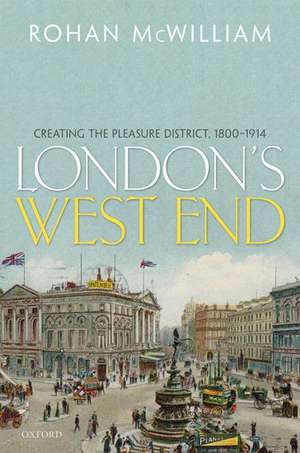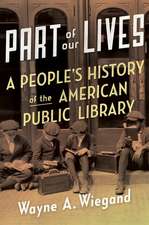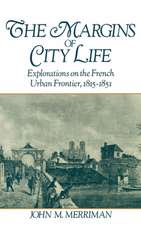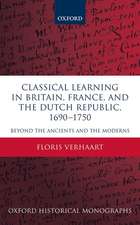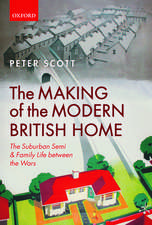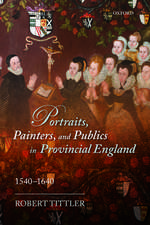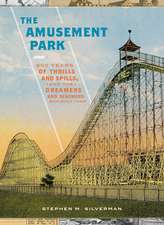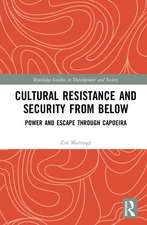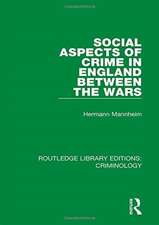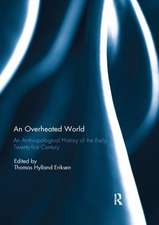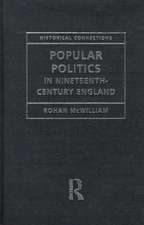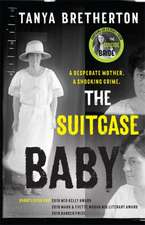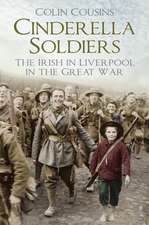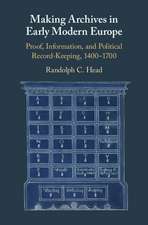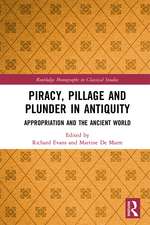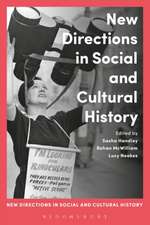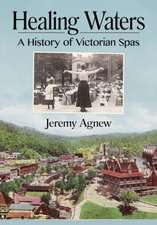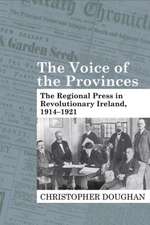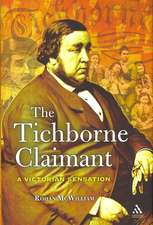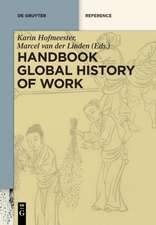London's West End: Creating the Pleasure District, 1800-1914
Autor Rohan McWilliamen Limba Engleză Hardback – 24 sep 2020
Preț: 277.73 lei
Preț vechi: 303.43 lei
-8% Nou
Puncte Express: 417
Preț estimativ în valută:
53.14€ • 55.63$ • 44.23£
53.14€ • 55.63$ • 44.23£
Carte tipărită la comandă
Livrare economică 19-25 martie
Livrare express 22-28 februarie pentru 70.53 lei
Preluare comenzi: 021 569.72.76
Specificații
ISBN-13: 9780198823414
ISBN-10: 019882341X
Pagini: 376
Dimensiuni: 163 x 243 x 28 mm
Greutate: 0.77 kg
Editura: OUP OXFORD
Colecția OUP Oxford
Locul publicării:Oxford, United Kingdom
ISBN-10: 019882341X
Pagini: 376
Dimensiuni: 163 x 243 x 28 mm
Greutate: 0.77 kg
Editura: OUP OXFORD
Colecția OUP Oxford
Locul publicării:Oxford, United Kingdom
Recenzii
In this first comprehensive scholarly account, McWilliam combines the roles of historical reporter, cultural analyst and ardent fan. Concerned with understanding the West End and its pleasures in terms of experience, he deconstructs the specific appeal to the senses, identifying 'an explosion in visuality' as the strongest stimulant.
McWilliam's book should, therefore, serve as a good place of departure for both undergraduates and researchers interested in not only the West End, but how entertainment districts function as a whole.
London's West End is a landmark work - both a magisterial history of one of the most significant urban spaces in modern cultural history and a groundbreaking contribution to the study of nineteenth century theatre, performance, and culture.
evocative and engaging
Readers of this impressive homage to Londons West End can look forward to pleasures nearly equalling those enjoyed by a visit to the district itself. With infectious enthusiasm and panache, Rohan McWilliam successfully evokes the sights, sounds, tastes and feel of the metropolitan heart of Britains culture and leisure capital.
This is a lovely book, which I thoroughly enjoyed, particularly, as I hope I've suggested, the well-chosen examples illustrating the 'culture industries', which were created by forces which shaped the West End (p. 8). Written in an easy style, carefully organised and easy to navigate, generous in its descriptions, with just enough detail to pique the reader's interest, and, importantly, bibliographic details to enable a follow-up, it will be a book I will return to more than once.
McWilliam is the first to take on such a history of the West End... A second volume is planned for the West End in the twentieth century's tumultuous years of war and reconstruction. If McWilliam succeeds as well as he does here then the two volumes will be a triumph... McWilliam explores this rich terrain with passion and panache. He has a sharp eye for telling details and has scoured the secondary literature as well as local and national archives to glean them.
Elegantly written, inventively researched, it is the most comprehensive account to date of the West End in its heyday, a dazzling world of interconnected attractions.
[McWilliam] covers a great deal of ground at a lively pace and his extensive bibliography points down many byways to be pursued for further information.
[London's West End] filled out my knowledge, adding colour and precision to it and, like the best theatre, it has made me see things differently. I can pay it no greater compliment than to say that when I reached the last page I felt like clapping.
Londons West End will be of particular interest to theatregoers, shoppers, diners and tourists, who go to the West End and want to know more about its history. McWilliam writes with a light touch and his research is full of interesting detail.
This scholarly tome... is thorough in its investigation of the area's social and cultural history, but the author achieves this with a light touch that makes it both very readable and fascinating.
This is a lovely book, which I thoroughly enjoyed... Written in an easy style, carefully organised and easy to navigate, generous in its descriptions, with just enough detail to pique the reader's interest, and, importantly, bibliographic details to enable a follow-up, it will be a book I will return to more than once.
Impressive history
McWilliam does an admirable job of never allowing the reader to forget these backstage realities while narrating the rise of the West End's public pleasures.
McWilliam's book should, therefore, serve as a good place of departure for both undergraduates and researchers interested in not only the West End, but how entertainment districts function as a whole.
London's West End is a landmark work - both a magisterial history of one of the most significant urban spaces in modern cultural history and a groundbreaking contribution to the study of nineteenth century theatre, performance, and culture.
evocative and engaging
Readers of this impressive homage to Londons West End can look forward to pleasures nearly equalling those enjoyed by a visit to the district itself. With infectious enthusiasm and panache, Rohan McWilliam successfully evokes the sights, sounds, tastes and feel of the metropolitan heart of Britains culture and leisure capital.
This is a lovely book, which I thoroughly enjoyed, particularly, as I hope I've suggested, the well-chosen examples illustrating the 'culture industries', which were created by forces which shaped the West End (p. 8). Written in an easy style, carefully organised and easy to navigate, generous in its descriptions, with just enough detail to pique the reader's interest, and, importantly, bibliographic details to enable a follow-up, it will be a book I will return to more than once.
McWilliam is the first to take on such a history of the West End... A second volume is planned for the West End in the twentieth century's tumultuous years of war and reconstruction. If McWilliam succeeds as well as he does here then the two volumes will be a triumph... McWilliam explores this rich terrain with passion and panache. He has a sharp eye for telling details and has scoured the secondary literature as well as local and national archives to glean them.
Elegantly written, inventively researched, it is the most comprehensive account to date of the West End in its heyday, a dazzling world of interconnected attractions.
[McWilliam] covers a great deal of ground at a lively pace and his extensive bibliography points down many byways to be pursued for further information.
[London's West End] filled out my knowledge, adding colour and precision to it and, like the best theatre, it has made me see things differently. I can pay it no greater compliment than to say that when I reached the last page I felt like clapping.
Londons West End will be of particular interest to theatregoers, shoppers, diners and tourists, who go to the West End and want to know more about its history. McWilliam writes with a light touch and his research is full of interesting detail.
This scholarly tome... is thorough in its investigation of the area's social and cultural history, but the author achieves this with a light touch that makes it both very readable and fascinating.
This is a lovely book, which I thoroughly enjoyed... Written in an easy style, carefully organised and easy to navigate, generous in its descriptions, with just enough detail to pique the reader's interest, and, importantly, bibliographic details to enable a follow-up, it will be a book I will return to more than once.
Impressive history
McWilliam does an admirable job of never allowing the reader to forget these backstage realities while narrating the rise of the West End's public pleasures.
Notă biografică
Rohan McWilliam is Professor of Modern British History at Anglia Ruskin University in Cambridge and a former President of the British Association for Victorian Studies. A co-director of the Labour History Research Unit at Anglia Ruskin, he is a Fellow of the Royal Historical Society and a member of the editorial boards of the Journal of Victorian Culture and the London Journal. He is also on the Retrieving data. Wait a few seconds and try to cut or copy again. Nineteenth-Century Studies and New Directions in Social and Cultural History. He has published widely on topics ranging from Victorian melodrama to the Labour Party in the 1980s, from the Victorian novelist G.W.M. Reynolds to the director Jonathan Miller. His edited collection on the Victorian publisher Edward Lloyd was the subject of a Times Leader column in 2019.
